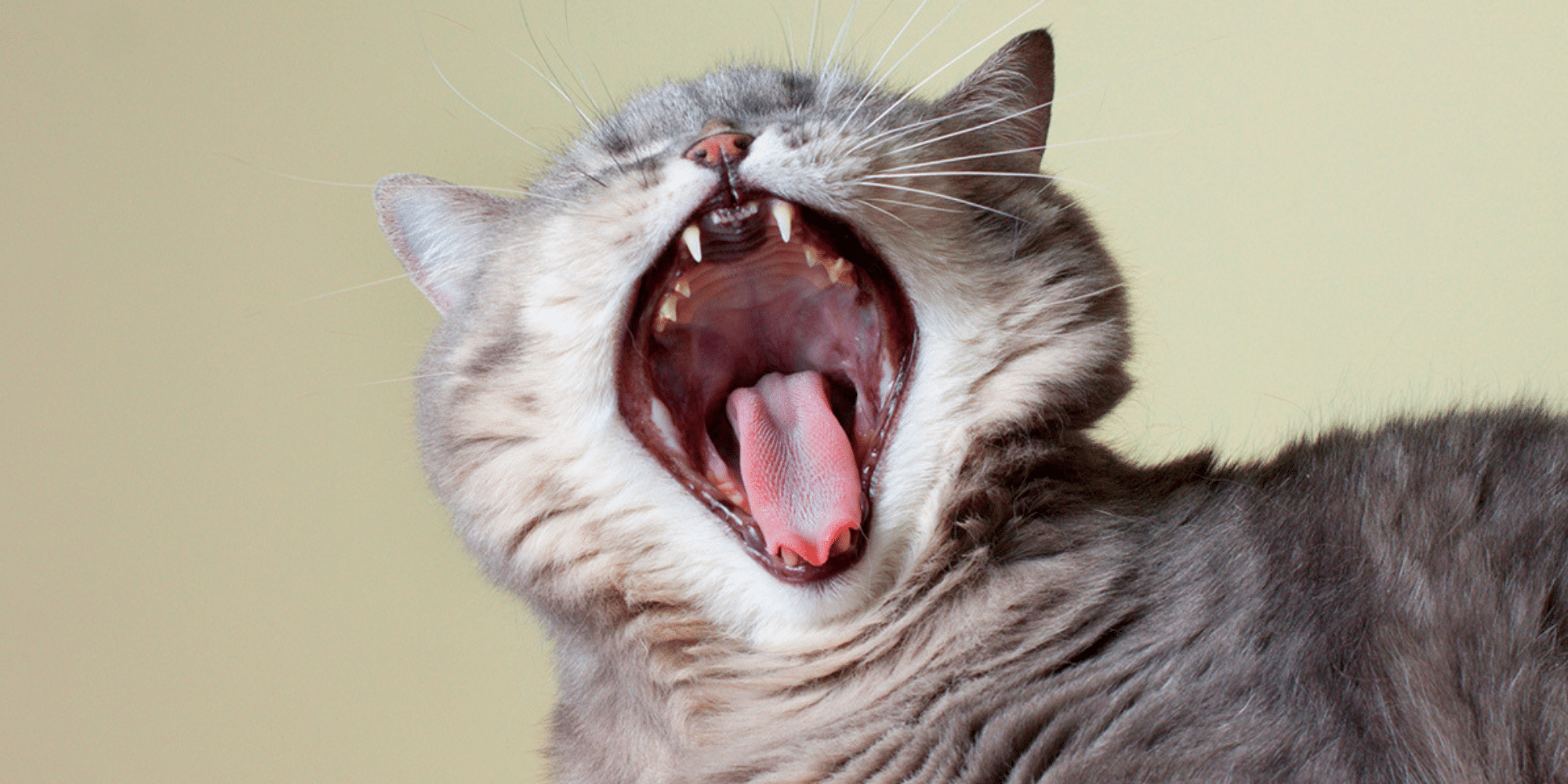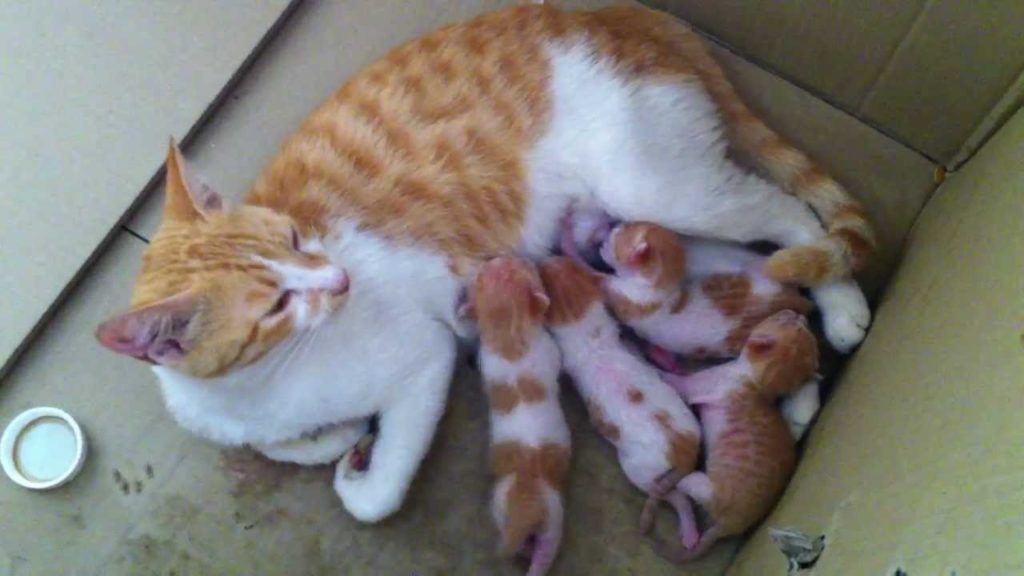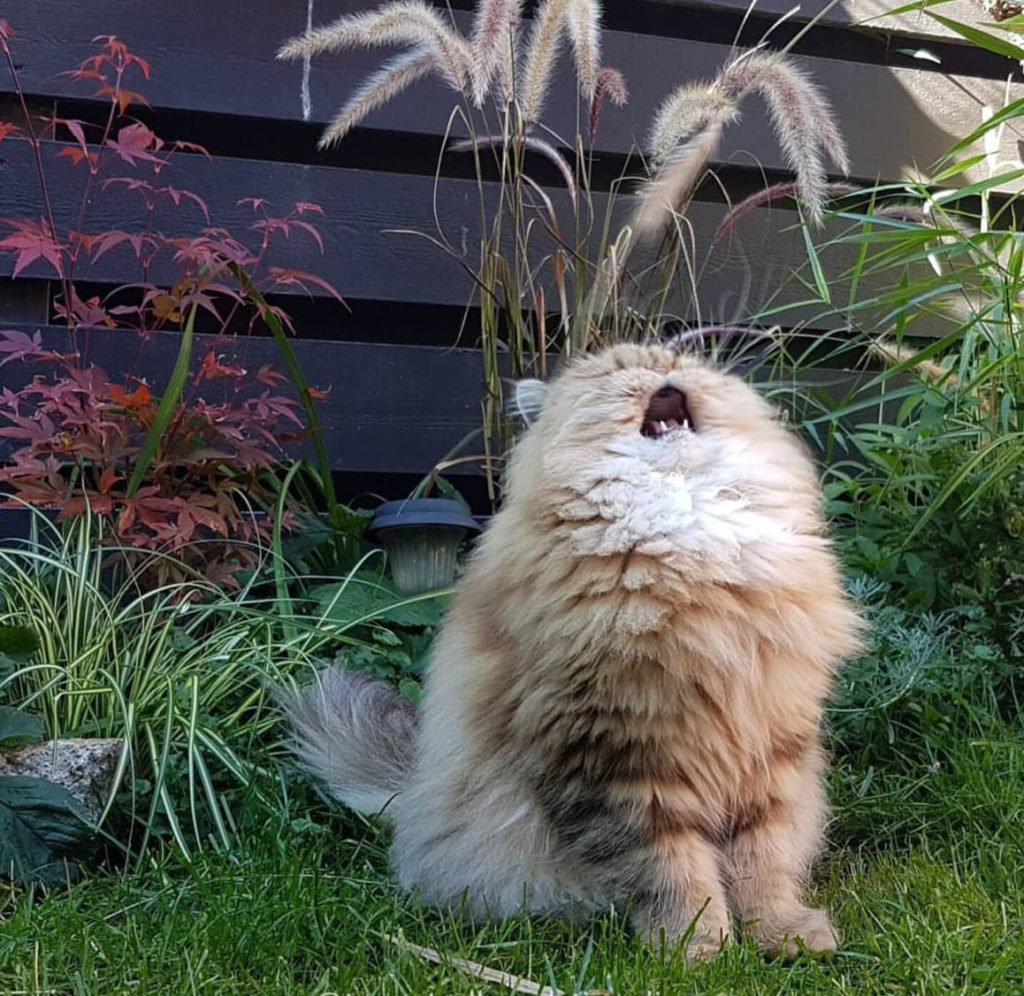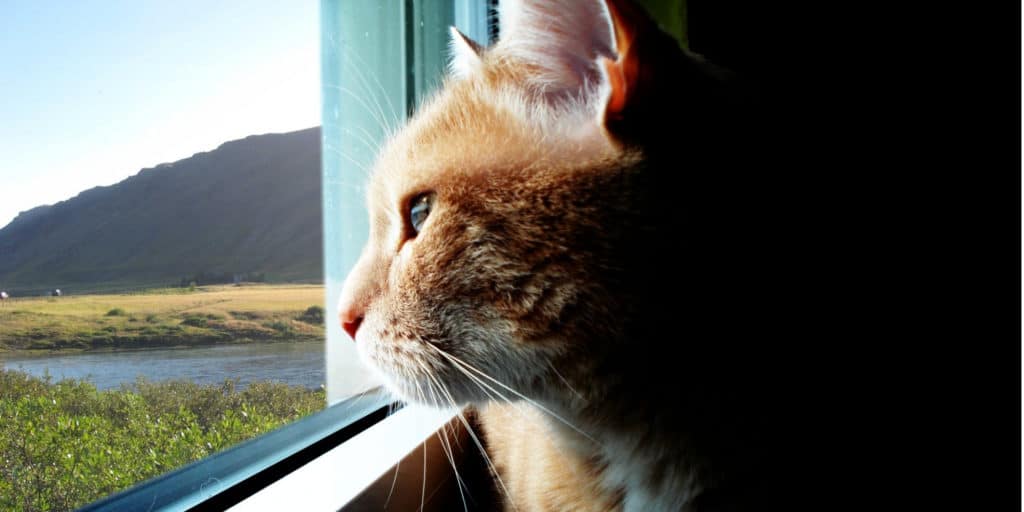If you’re a cat owner, you know that cats seem to have a language all their own. A language that you aren’t exactly fluent in. But the different sounds a domestic cat makes can be important clues about how your feline friend is feeling. What do different cat sounds mean? We’ll give you the Rosetta Stone you need to translate different cat sounds.
It’s only living with a cat that gives you the full picture of all the various vocalizations they’re capable of. It’s almost like living with that guy from the old Police Academy movies who could do all those crazy sound effects just using his voice! Cat sounds can be as varied as the cats which make them.
But your cat isn’t just making weird noises to spook you in the middle of the night, so you’ll wake up and pay attention to them (well, okay, some of them are doing it for precisely that reason). Different cat sounds can tell us things about a cat’s mental and physical state. We’ll explain what the most common cat noises mean.
What Do Different Cat Sounds Mean? All cats are different of course, but animal experts have been able to come up with a “one size fits most” explanation for what different cat sounds mean.
Meowing
Meowing is the most common cat sound to humans, and there is a good reason for that. Adult cats meow in order to communicate with humans, rarely to speak to fellow cats. How cute is that? Wait, it gets even more adorable.
Kittens meow as a way to get the attention of their mommy. Feral cats will outgrow this behavior as they age out of kittenhood, but domestic cats will continue to make meow sounds because they think of us as their mommy no matter how old they are since they depend on us for mommy things like food, affection, and attention. Now that is literally, and figuratively the cats meow!
A general meow usually means the cat wants food or attention or maybe they’re just saying hello when we come home. Sometimes though meowing can indicate loneliness, anxiety, or illness, a short meow, more of a “mew” sound can mean your cat is hungry or lonely. “Mew, mew, mew” is kind of a cat’s version of a kid saying, “Mom, mom, mom!” over and over. It means the same thing, whether it’s a cat or a kid. Give me attention!
A drawn-out meoooooow can mean your cat is worried, aggravated, or doesn’t like something. Non-stop meowing can be the way your cat is trying to tell you they’re sick or have been injured and may require a trip to the vet.
Purring
The sound of a cat purring is so relaxing! It makes a cat owner happy, and most of the time indicates that the cat is happy and content too.
[tweet text=”What’s not to love about cats? They’re puuuuurfect!”]
Sometimes cats purr when they’re nervous. Look at the cat’s body language during the purring. If they’re tensed up or have their ears back, that can indicate a worried rather than a contented purr.
Caterwauling
I just love that word, caterwauling. Say it. Caterwauling is fun to say. Growing up, this is the word we used for lousy singing. “Oh, lawd. I hope Aunt Katie doesn’t convince her daughter to let her sing at her wedding. No one wants to hear her caterwauling.” A little mean maybe but perfectly innocent.
Only it isn’t! Caterwauling is the sound a female cat makes when she want to ahem, get it on because she’s in heat and wants to make kittens. This is a mating call to male cats. Sorry, Aunt Katie.
Chirping
This is one of the cat sounds that has a few names. Chirping is also called trilling or a chirrup. I think it’s everyone trying their best to imitate the sound and coming up with their individual spin. When I was in college, my window faced a tree in which squirrels lived. They used to tease my cat and he would, what I called, chirp at them.
These almost birdlike sounds are sometimes used by mommy cats to get her kittens to pay attention to the essential cat lessons she’s trying to teach them. In older cats, these sounds can be a way to get your attention or a sign that a cat is happy or excited.
Hissing
A cat hiss is pretty hard to misinterpret. It means the cat is spooked by something and prepared to fight. The hiss is often accompanied by pretty unmistakable body language; arched back, fur that looks like it’s been affected by static electricity, ears flat to the head, and teeth bared.
The hiss is created when the cat forces a burst of air out through her arched tongue. If your face is close enough to the cat when she hisses, you can actually feel the air being shot out through her mouth.
The cat is pissed and who or whatever is pissing it off should back away. The hiss is the only warning you’re going to get to the can of whoop-ass the cat is about to open up on you!
Yowling
A cat yowling is probably the hardest cat sound to interpret because it has so many possible meanings, and most of them aren’t good.
Yowling can indicate the cat is in pain, upset that another cat is on its territory, is ill or upset because something in its environment has changed or in the case of a move, its whole environment has changed. Frequent, prolonged yowling may call for a trip to the vet.
Growling & Screaming
A cat growling is a warning, often to a person or another animal to get out of the cat’s territory.
Screaming is perhaps the most distressing sound a cat can make. I’m trying to be delicate here because no one (I hope) wants to read cat porn so here it goes. Cat sex is not necessarily pleasurable to the female cat. I’ll just leave it at that. The world has too many unwanted cats. Have your cats sterilized, please.
Cats also scream when they’re fighting. If you’ve ever heard cats scream during a fight, you’ll think it’s a sound that comes straight from Hell.
A Language All Their Own
All animals have their own forms of communication. Dogs bark, birds sing, squirrels chirp, snakes hiss, and cats meow, purr, trill, chirp, caterwaul, growl, scream, hiss, and scream. But now you know if not how to speak your cat’s language, at least to understand it. And understanding our pet is what all pet owners want. Meow.



